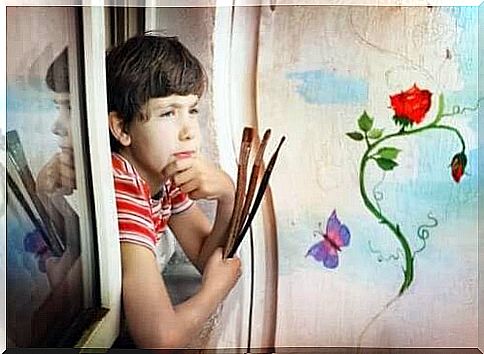6 Tips For Developing Your Kids’ Talents

Some paint, and others like music or football. Every boy or girl has skills for something, that’s why every parent wants to know how to develop talents in their children.
Preschool age is the time to start exploring your skills and abilities. Developing talent not only boosts your self-esteem, it also helps drive your interests in the future.
How to discover talents in your children?

Doing what is good is a source of well-being for the child. If, in addition, you can start developing talents in your children from an early age, you can reach levels of excellence. Strengthening experiences like this can positively mark you for the rest of your life.
To discover and develop your child’s talent, you should take time to be with him, and follow these 6 recommendations:
1. Watch your child
Watch it. Anytime is good for that: while doing his homework, playing, or in any other activity you do with him as a family. Concentrate on noticing what he likes most, or what he is good at.
Assess if you like music, if you like dancing or prefer to paint, if you have a good memory, or if you invent games or stories. They can show interest in languages, or learn to read fast. See if they use both hands to write, or are easy for sports. Any of these could be signs that point to the abilities your child has.
2. Give him freedom to explore
It helps you get to know new and different things. Thus, you will be increasing in him the pleasure of discovering new experiences. It doesn’t matter so much to achieve a certain result, but the process. That is, give him the opportunity to test his skills. This is an effective strategy for figuring out what your child’s talent is.
If you let him explore and learn about his own possibilities, he will gradually discover what he is passionate about and what his abilities are. And as you exercise them, the degree of accomplishment of the task at hand will be even better.
3. Evaluate your pace
Your child may surprise you with the speed with which he learns or masters knowledge. Or, conversely, you may need more time to find out what you like. A good piece of advice, in this regard, is to avoid overloading yourself with an excess of extra activities. If you overload him, he’ll get tired. And after fatigue, disinterest usually appears.
Guiding your little one to full knowledge of their personal interests, their physical and mental abilities, takes time. So take it easy, play with it, let it explore, put yourself to the test, make mistakes, and start over. It’s all part of the adventure, and that’s what makes it really exciting.
4. Avoid comparisons to strengthen your children’s talent development
Never compare your child’s intelligence or abilities with those of another child. Even less, with the brothers, if he has them. Each child is unique and, as such, deserves to be treated according to their individuality.
Talent can be hereditary or not. It can be innate or achieved by developing certain skills. So, you need to keep in mind that your child won’t be a musician just because his grandmother was, or a football player just because one of his siblings is.
5. love your child

Wondering what love has to do with discovering your child’s talents? Well, love is important in everything we intend to do, influence or empower our children.
Love your child just as he is. Don’t want to see in it what you imagine or what you would like to have. This idea does not correspond to reality. Don’t be fooled into thinking that your child will be or enjoy something he doesn’t like, or for which he has no special skills.
6. To develop your children’s talents, don’t make your passion an obligation
Once you’ve determined your child’s talent, be prudent and don’t make it an obligation. Let him enjoy what he does. Let him learn, discover, fulfill himself. Only your interest justifies the reason for this experience. Nor does he scold him for his performance. This pressure is counterproductive. If, at that time, what he was trying to do didn’t go so well, acknowledge his effort and encourage him to improve.
The freedom with which your kids can get close to what they’re passionate about can be the trigger for discovering their talent. And remember: talent is not genius. It is often enough to be good at something. It doesn’t have to be the best. On the contrary, obligation reduces pleasure, and could frustrate your interest and performance in the activity you were beginning to enjoy.








